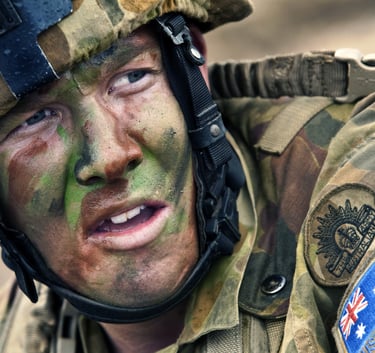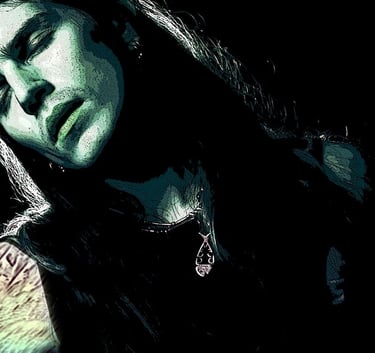My Research
PhD
Title: Representations of PTSD experienced by Australian veterans of the War in Afghanistan in Australian contemporary fiction.
Abstract: This thesis examines the literary techniques and devices commonly used in creating verisimilitude in representations of trauma as experienced by Australian military veterans of the war in Afghanistan in Australian contemporary fiction. Caruth argued the dissociative characteristics of trauma mean that traumatic experience can never truly be known or understood as anything other than a recurring failure of memory to invoke facts or ‘truth’ associated with the event thereby rendering ‘truth’ beyond linguistic representation. But is this relevant to fiction writing? Theoretical and conceptual analysis is drawn from practice-based research, critical study, and poetics and narrative writing. The creative artefact experiments with common literary techniques and devices used in creating a linguistic representation of Post-Traumatic Stress Disorder as experienced by a veteran of the War in Afghanistan. The exegesis draws upon literary criticism, social and cultural criticism, and philosophy to analyse the same techniques and devices used by authors of three recently published contemporary trauma fictions representing the same subject.
Completed: 2024


Title: Representing the archetypal tortured artist character as more than just a cliche.
Abstract: The 'tortured rock star' archetype is latest iteration of an archetype that has appeared as a recurring theme in literature and film for many years. However, because of the negative connotations attached to this character type, it is not one that is favoured by the wider creative community. In narrative fiction, these archetypal characters are often represented as a negative stereotype struggling with inner turmoil, alienation, and suffering. They might exhibit traits like suicidal ideation, substance abuse, and mental illness, but their defining characteristic is a constant torment linked to interpersonal conflicts and artistic frustrations, real or imagined, stemming from a lack of emotional, financial, or artistic support. The core question is, can a negative archetypal character such as the ‘tortured rock start’ transcend stereotyping and cliché in order to have a positive impact the creative community? This interdisciplinary project blends autoethnography, autobiography, sociology, creative writing, and academic research to explore assumptions associated with this archetype and provide valuable insights into the complex relationship between creativity, mental health, and societal demands, in order to challenge preconceived notions of what the 'tortured artist’ archetype means. It encourages a re-evaluation of this archetype within the context of modern culture and the multifaceted challenges facing artists today.
Completed: 2018
Master's Degree


Image use via Creative Commons
© 2024. All rights reserved
In the spirit of reconciliation, we acknowledge the Traditional Custodians of Country throughout Australia and the Torres Straight Islands and their connections to land, sea, and community. We pay our respects to elders past and present and extend that respect to all First Nations and Torres Strait Islander peoples today.
ABN: 19 569 432 238





